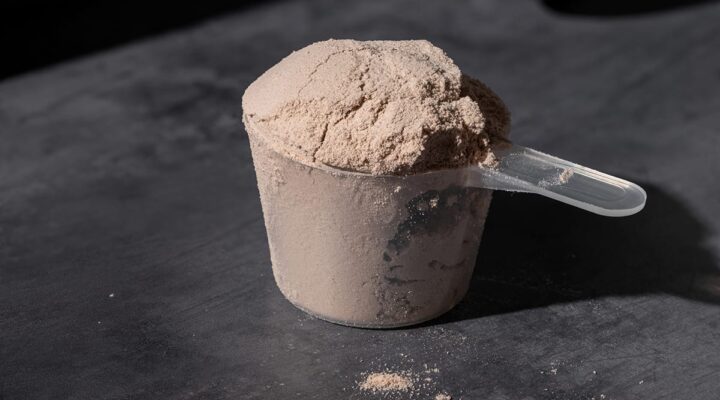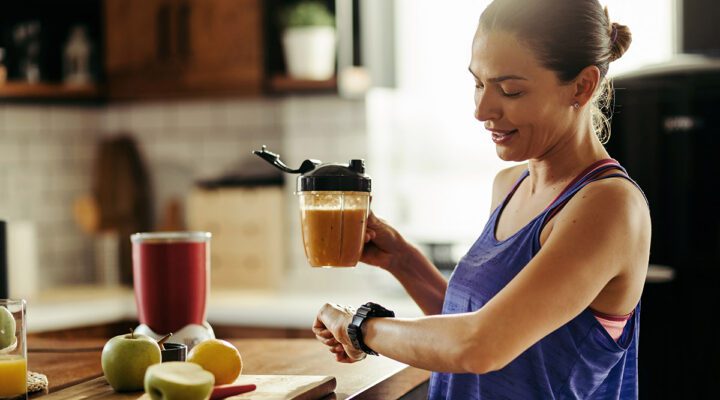Fuelled by Form: Dr. Rupy Aujla on Why We All Should Be Eating More Protein
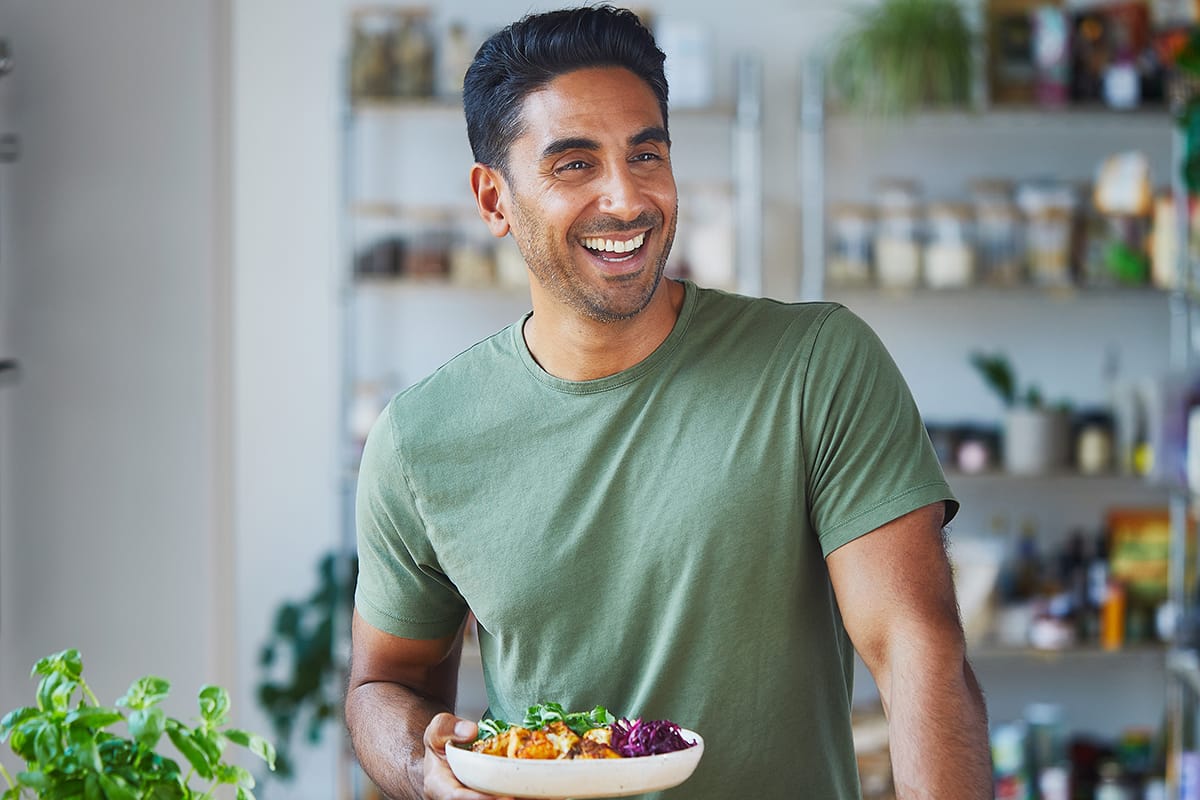
With five bestselling cookbooks, a hit podcast boasting over 20 million downloads, and a recipe app helping thousands cook their way to better health every week, Dr. Rupy Aujla has fast become one of the UK’s most trusted voices on nutrition.
The qualified GP and emergency medicine doctor, who holds a master’s in nutritional medicine, is best-known as the founder of ‘The Doctor’s Kitchen’, a platform built on the simple but powerful idea that food can be medicine.
Over the past decade, Dr Rupy has been on a tireless mission to promote medicinal benefits of good nutrition to others, whether through his BBC and Channel 4 shows, Culinary Medicine (the UK’s first non-profit clinical nutrition course for med students), or his popular podcast, where he regularly chats with leading experts from the worlds of science, food and wellbeing.
Fresh off the back of his latest book launch, ‘The Doctor’s Kitchen: Healthy High Protein’, we caught up with him to chat about the power of plant protein, the reality of doctors’ diets and his golden rules for eating well.
You were an NHS doctor for many years. What inspired you to launch The Doctor’s Kitchen and focus on the power of food as medicine?
I’ve been a doctor for over 15 years, but really, my introduction to food as medicine came when I became a patient myself back in 2009.
I started suffering from atrial fibrillation, and, long story short, after seeing a number of different cardiologists, I decided to take matters into my own hands. I started going to bed on time, even when I was doing night shifts, and lo and behold, my atrial fibrillation episodes went away.
That really prompted me to dig deeper and learn a lot more about nutrition and lifestyle. That’s when I got properly interested in nutritional medicine, which, honestly, just wasn’t something we were taught at medical school. It wasn’t something I had a particular focus on before either – It kind of came out of necessity.
Then, in 2015, I was working in A&E and intensive care in Australia, and that’s when I started sharing recipes online. I lived a bit of a double life for a few years; working in the NHS while building up Doctor’s Kitchen on the side. And then a couple of years ago, I decided to step away from the NHS and go full-time with Doctor’s Kitchen, which is now a media company with podcasting, social media, YouTube and cookbooks. All that good stuff.
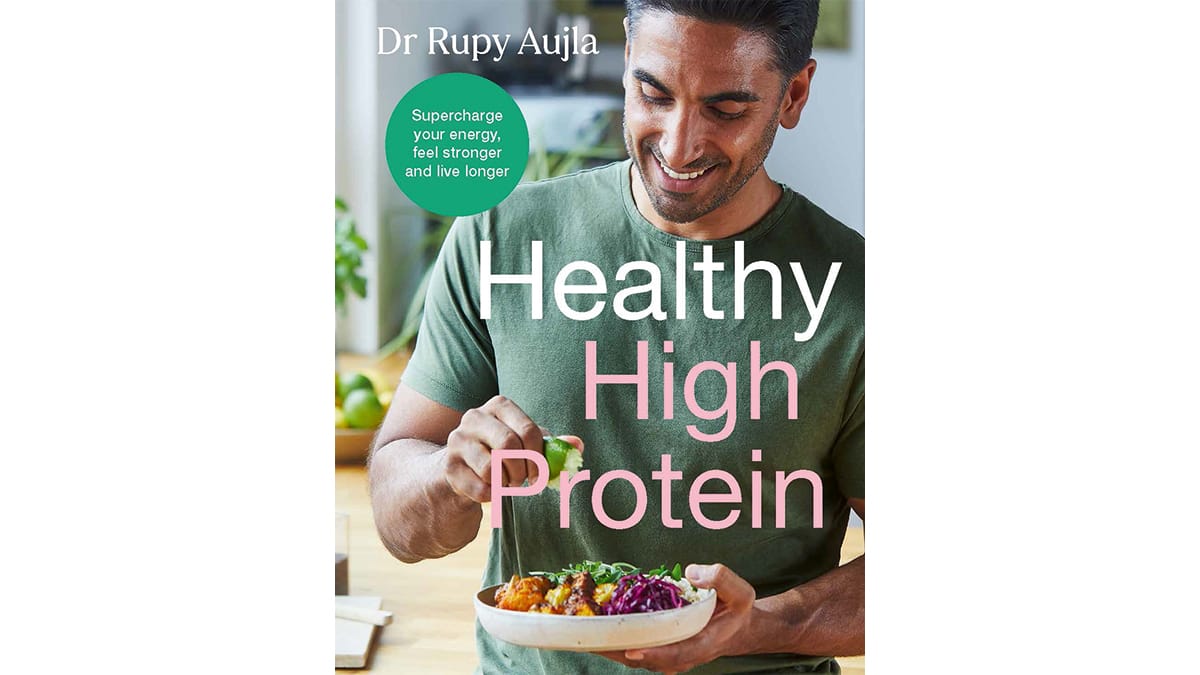
You’ve just written a new recipe book that focuses on protein. Why is having a protein-rich diet important for our overall health?
Protein is so much more than just ‘meat and muscles’. It’s essential for enzymatic health, hormonal balance, immune function… all the stuff happening under the surface that we don’t necessarily think about.
In fact, only about 25% of the protein you eat actually goes to your muscles. The majority of it is used across the body for all sorts of vital physiological processes.
High protein doesn’t have to mean high meat. You can get protein from soy, tofu, tempeh, nuts, seeds, nut butters like tahini. They’re some of the best sources, actually. Beans and legumes too.
What people really need to understand is that getting more protein into your diet is key for thriving. It’s linked to healthier aging, reduced frailty and improved muscle mass, which supports metabolic health, brain health, all of it.
Many of us are actually under-consuming protein, according to the latest guidance from researchers. The minimum recommendation is around 1.2 grams of protein per kilogram of ideal body weight, per day. And most people simply aren’t hitting that.
What does your day of eating look like? Do you follow any kind of food philosophy?
I don’t follow any specific diet or label, but I do use three simple questions to guide what I eat:
- Am I getting enough protein in this meal?
- Are there gut-healthy ingredients in here?
- Is this anti-inflammatory?
That’s really the framework I use, but if you’re asking what a typical doctor eats… it’s not great. It’s sandwiches, cereal, whatever’s in the cafeteria, or whatever you can grab on the go. Things like pizza, takeaways, snacks, Haribo. Haribo is very popular in hospitals.
It’s no wonder that rates of obesity are higher in doctors and nurses than the general population. The food culture in healthcare really needs to change.
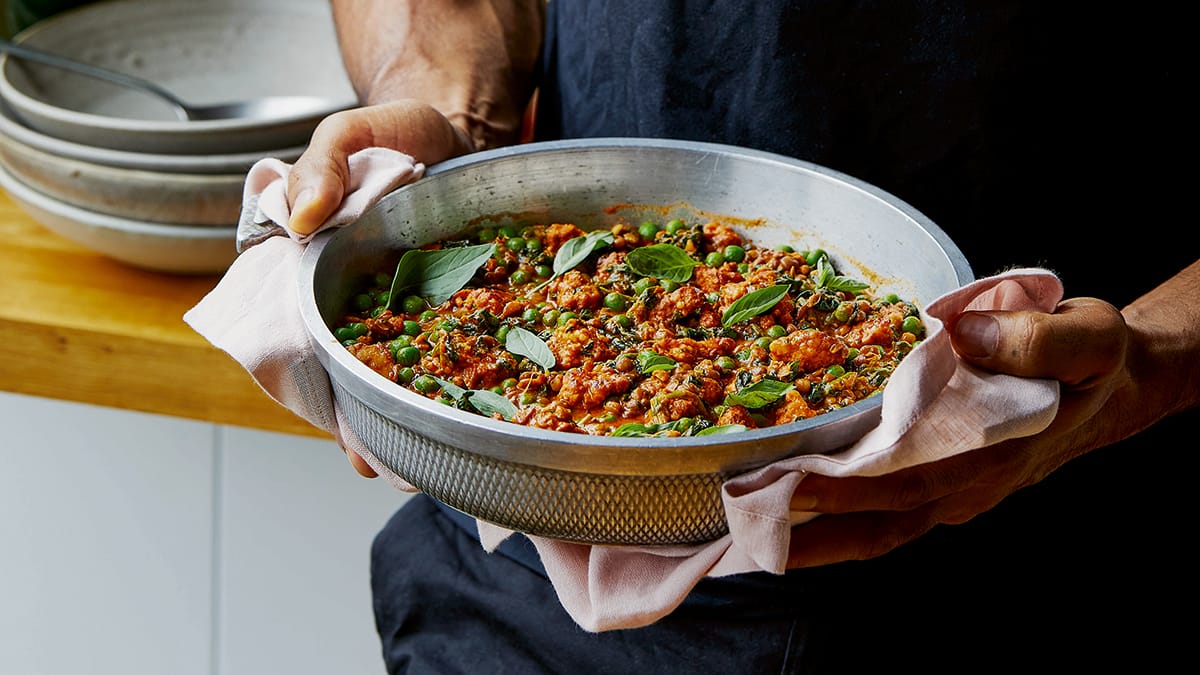
Outside of food, how do you look after your health?
I train regularly, meditate, sleep on time and try to manage my stress as best I can. And honestly, one of the biggest things for me is spending time with my wife and my child – just being with family. That’s what keeps me grounded.
Do you have any wellness rituals you lean on when you’re feeling stressed or tired?
Meditation, for sure. And walking. Getting out into nature as much as possible really helps reset things for me.
What’s one fruit or vegetable you couldn’t live without?
Broccoli.
If you could be any kitchen utensil, what would you be?
I’ve actually thought about this many times. I’d probably be a garlic grater or a potato masher.
But if I had to pick just one, I’d go for a palette knife.
You can use it to flip mushrooms, slide under fish, spread butter… spread anything really. It’s got that perfect curvature to slip underneath things that might be sticking to the bottom of the pan. It’s just a nice utensil that deserves to be in every kitchen.







